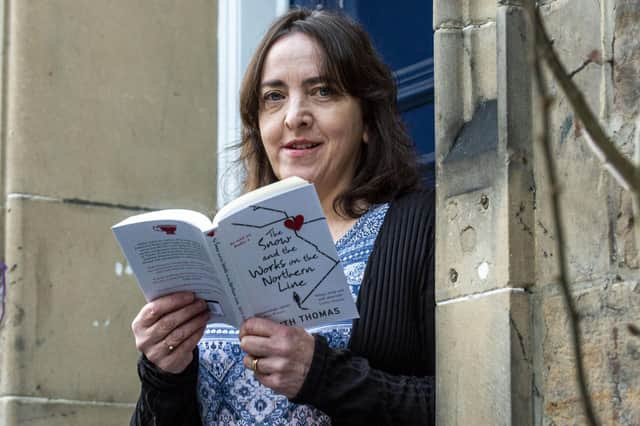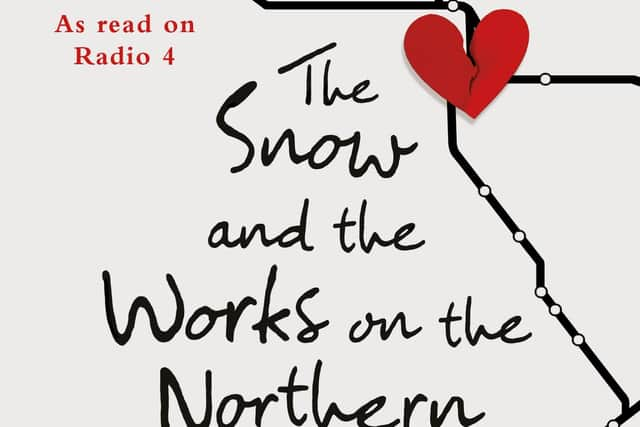The Snow and the Works on the Northern Line, part five: There was the same desire to get away...


Then she embarked on what she’d been doing in that time: how she’d been briefly married and divorced; how she’d travelled to Beijing and Toronto and Tokyo (‘So my dad was right!’ I almost burst out); how she’d left the university and had recently become the director of a place in Tooting called the London Museums Interpretation Centre – (‘Yes,’ I said, ‘I read about that!’) – which was an exciting career move, Helen ploughed on, because not only was the work fascinating and fun, but the perks and the bonuses and the social life were excellent, and she could also wangle more funded conference trips to China and Canada and Japan, thereby enhancing her reputation as a Beaker People expert. Which was the real point.‘That sounds great,’ I said. ‘Getting the chance to, y’know… continue your research. And go to Tokyo. Wow! I’ve always wanted to go and see what—’‘Yes, it’s great,’ Helen confirmed.
I hesitated. I still felt oddly numb, after my argument with Simon. ‘So you’re still specialising in . . . ancient peoples . . . ?’
Advertisement
Hide AdAdvertisement
Hide AdHelen gave me a funny look. ‘Of course I’m still specialising in ancient peoples! Ancient peoples are my life. The Beaker People in particular. I’m pretty much a world authority on them these days, Sybil. I’ve even recorded a TED talk recently.’‘Wow,’ I said, even though I’d never been sure about TED talks; they’d always sounded quite overwhelming to me, like a cross between bears and Ted Hughes. Also, I was not convinced Helen was a world authority on the Beaker People, though I knew she’d always been ambitious. ‘So what’s it about? Your talk?’‘It’s about the Beaker People in general, and, more specifically, about a discovery I made earlier this year, during a dig in Sussex.’‘Really? In Sussex?’ I said, feigning interest.‘Yes, my team and I came across some extremely exciting pottery fragments there, in Winchelsea. I’ve called it the Winchelsea Hoard...’‘Wow, amazing! Like Sutton Hoo or something!’ I said, trying to maintain the note of wonder. Somehow, though, the words extremely exciting and pottery fragments had never quitegone together in my head.‘Yes,’ Helen said, ‘we found a whole stash of Beaker fragments in a field just up from the beach. Analysis of which suggests that Beaker trade routes went much further into Southern Italy than we’d thought.’‘Italy? But I thought you found them in Winchelsea.’‘We did,’ she snapped. ‘But finding them there, in Winchelsea, has opened up a whole new set of ideas about their trade routes.’She looked at me. ‘Because of the type of grain residue that was in them.’


She paused, as if waiting for my slowly whirring brain to catch up. ‘Hence my extended trade route theory. Which is what I talk about, in my TED talk.’‘Well, wow...’ I said. I didn’t know what else to say. It was like being back in one of her tutorials. There was the same desire to get away. ‘So what were they? These grains?’‘A variety of turanicum wheat from Southern Italy. And as we know, or thought we knew – that’s the only part of the Mediterranean the Beaker People were not supposed to havelived in!’Triumphant, she stopped talking, and waited for me to speak.‘Well, that does sound exciting,’ I mumbled. I thought of my dissertation again, in which I’d ad-libbed wildly on parallels between the Beaker People and the mythic significance of goblets and chalices in Ancient Rome, which was all a load of rubbish, of course; I’d had no evidence for this at all.‘So, when’s it going out?’ I asked. ‘The talk?’‘In the spring. It’s in post-production. I’m focusing on PR stuff now.’‘Right.’‘Yes, so what I’m doing at the moment – mainly to get LMIC’s role more out there, in the public consciousness – is I’m developing a range of Beakerware kitchen products with my colleagues in Tooting.’‘Really? Beakerware?’ I thought of the Tupperware my parents had always used to bring out on picnics when I was a child; of our serious little party of three, at the beach atDymchurch or Camber Sands.‘Yes. We’re going to sell a range of replica beakers – earthenware bowls and cups of different sizes – in various museum shops next summer. Even in places like the British Museum, if they’ll have us. Eventually we’re hoping to roll them out across Europe.’‘Roll them out?’‘Expand the market. Then we’ll channel the profits back to LMIC. Via our own museums, of course.’‘I see,’ I said.‘The thing is, small museums are hopeless at commercial enterprises,’ Helen explained. ‘So it’s LMIC’s role to get them on board. They get the money and we get the kudos. And museum shops are awash with idiots wanting to part with their cash.’
Tomorrow:
The Snow and the Works on the Northern Line, by Ruth Thomas, published in paperback by Sandstone, priced £8.99